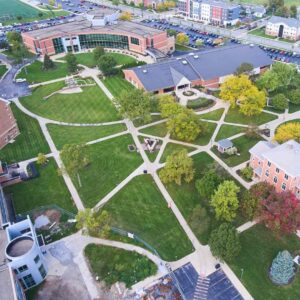Introduction
Choosing the right college is one of the most significant decisions you’ll ever make—it shapes your academic, professional, and personal development. With countless options available, the process of how to choose a college can seem overwhelming. This blog post aims to simplify your decision-making by offering ten essential tips to consider when selecting a college. Whether you’re looking to choose colleges that offer a bustling large university environment or a cozy small college setting, these guidelines will help you find a place where you can thrive both academically and socially.
- Understanding Your Academic Needs

When you start to choose colleges, one of the first things to consider is whether their academic offerings align with your educational goals. It’s crucial to research and understand the specific programs each college offers. Look into the qualifications of the faculty, the achievements of the department, and the variety of courses available. Colleges with strong programs in your area of interest can offer a more tailored education that might better prepare you for your future career. Remember, the right academic environment is key to fostering your intellectual growth and ensuring you have the support you need to succeed.
 Consider College Size and Student Population
Consider College Size and Student Population
The size of a college can significantly affect your experience, so it’s an important factor in how to choose a college. Larger universities often provide a wide range of majors and resources, including extensive research facilities and a variety of extracurricular opportunities. However, they may also mean larger class sizes and less personalized attention from faculty. On the other hand, smaller colleges typically offer smaller class sizes, closer interactions with professors, and a tightly-knit student community. Consider what learning environment will benefit you the most and help you thrive both academically and socially.

- Location and Its Impact
Choose colleges based on their location, considering how the geographical setting will impact your college experience. Urban campuses offer vibrant city life and are often hubs of cultural, social, and professional opportunities. Rural colleges provide serene environments and often tighter community connections but may offer fewer immediate job opportunities post-graduation. Suburban colleges can offer a mix of both worlds. Consider your personal preferences and the type of environment you thrive in when choosing your college.
- Campus Resources and Facilities

A campus’s resources and facilities are crucial to your college experience. Look for colleges that provide comprehensive libraries, modern laboratories, extensive sports facilities, and robust student health centers. These resources will not only support your academic success but also your physical and mental well-being. Whether it’s a quiet place to study or a gym to unwind after lectures, having access to excellent facilities can greatly enhance your daily life and learning environment.
- Accreditation and Reputation
Accreditation is essential as it ensures that an institution meets or exceeds minimum standards of quality. When you choose colleges, verify that they are accredited by the relevant educational authorities. Additionally, consider the college’s reputation in your desired field of study. Institutions that are highly regarded in specific sectors can enhance your resume and open doors to advanced career opportunities through rigorous education and networking prospects.
- Cost and Financial Aid Opportunities

Understanding the cost of education is crucial. Besides tuition fees, consider living expenses, travel costs, and other financial requirements. Make sure to explore financial aid options such as scholarships, grants, and student loans. Many institutions offer financial assistance programs to help manage or reduce the burden of educational expenses. Choosing a college that offers a good financial aid package can lessen future debt and provide peace of mind.

- Campus Visit and Interactions
Visiting a campus can give you a real feel for the college’s environment and culture. It allows you to interact with current students and faculty, attend classes, and perhaps even stay in a dorm. These experiences provide insights that you can’t get from brochures or websites. A campus visit can be instrumental in determining whether an institution feels right for you.
- Extracurricular Activities and Community Engagement
Extracurricular activities and community engagement are important aspects of the college experience. They provide opportunities to develop additional skills, meet new people, and engage with the community. Look for colleges that support your interests, whether they are in sports, the arts, or volunteer work. Participating in these activities can enrich your educational experience and foster a sense of belonging and achievement.
- Career Services and Alumni Success
Evaluate the college’s career services. Effective career support, such as internship opportunities, job fairs, and alumni networks, is crucial for making the transition from education to employment. Additionally, the success rate of alumni can indicate the quality of education and the effectiveness of the college’s network in helping graduates secure good positions in their fields.
- Conclusion
Choosing the right college involves a careful balance of many factors, each contributing to your personal and academic development. By taking these ten essential tips into consideration, you can make a well-informed decision that aligns with your long-term goals and aspirations. Remember, the right college is out there for you, and taking the time to choose wisely can lead to some of the most rewarding years of your life.

